How the Jewish community woke up to abortion rights
Activists spent decades ringing the alarm, but it took Roe v. Wade being imperiled for many rabbis and foundations to pay attention
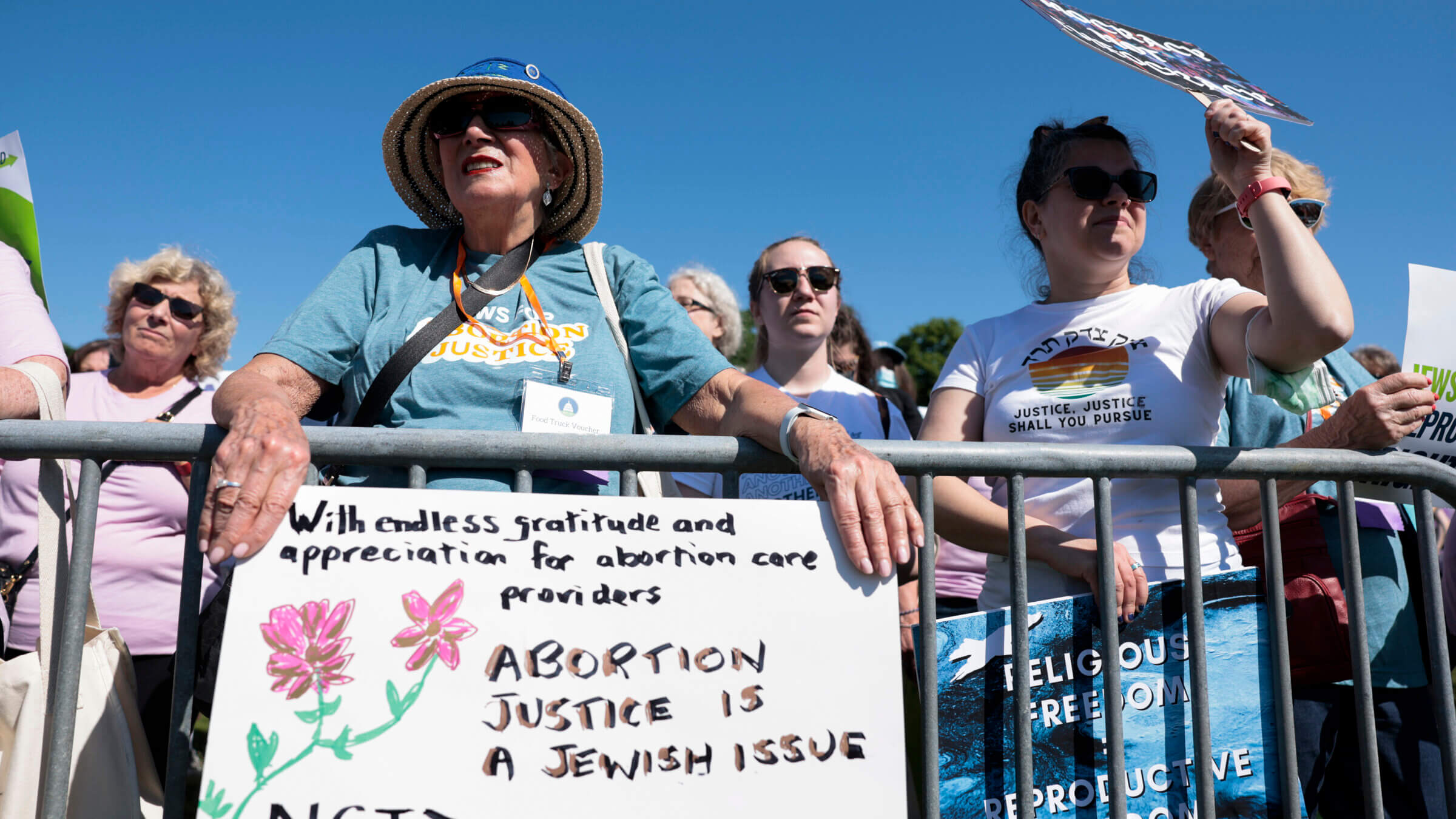
Protesters cheer as they attend the “Jewish Rally for Abortion Justice” rally near the U.S. Capitol in May. The National Council of Jewish Women, which sponsored the rally, and other Jewish groups are trying to change the narrative around religion and abortion. Photo by Getty Images
When Sheila Katz first started assembling a group of rabbis to speak out in favor of abortion access two years ago, she figured it would be an easy sell. More than 83% of American Jews believe abortion should be legal, Jewish law allows for the procedure in many cases, and the liberal denominations that dominate the community have long championed it as a fundamental freedom.
The timing seemed ripe, too. Following the 2020 death of Supreme Court Justice Ruth Bader Ginsberg, a new conservative supermajority clearly put the constitutional right to abortion on the chopping block.
But Katz, head of the National Council of Jewish Women, and Rabbi Danya Ruttenberg, who she hired to organize the new clergy movement, ran into an unexpected obstacle.
“We learned really quickly that rabbis were uncomfortable saying the word ‘abortion,’” Katz recalled. “It kind of blew our minds.”
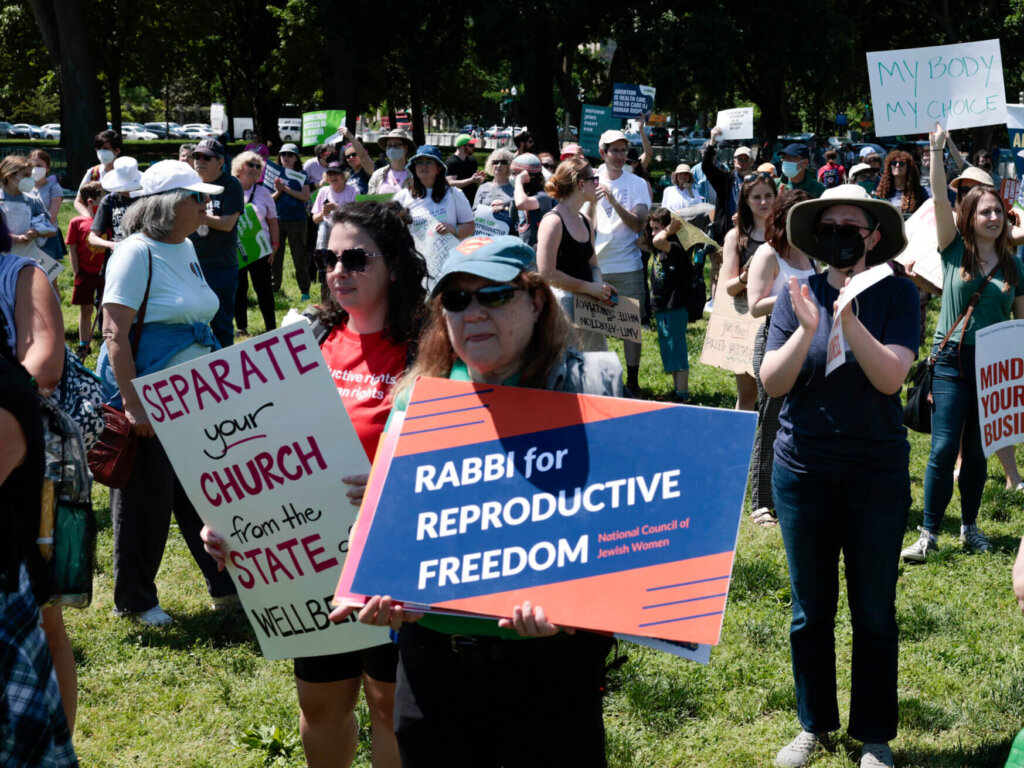
Today, NCJW is fielding more than 400 requests from synagogues around the country for “abortion bans are against my religion” signs, “reproductive freedom” banners and Havdalah kits that repurpose the Shabbat ritual to focus on a post-Roe reality. In the 11 weeks since the Supreme Court’s draft ruling in Dobbs v. Women’s Health Services was first published, and especially the five since it became official, the group has raised $450,000 for a new abortion fund, added thousands of new people to its email list, and brought 1,500 people to a Jewish rally for abortion rights outside the U.S. Capitol in May.
It now sits at the center of one of the liberal Jewish world’s top concerns, with far larger and better-known groups like Hillel and the Center for American Progress, as well as the Reform and Conservative movements, referring people to NCJW for talking points, toolkits and donations. Katz said 200 Jewish groups have reached out since the decision about how to respond.
The group was able to mobilize quickly and effectively in part because of the groundwork laid during the past two years — and the past two decades — when Jewish leaders, like others on the political left and in the Democratic Party itself, were reluctant to engage on what many saw as a touchy subject, and complacent about what they saw as a settled question.
To accommodate clergy discomfort with the term “abortion,” for example, Katz and Ruttenberg chose to name their new group “Rabbis for Repro,” and changed its focus from political advocacy to providing pastoral care for community members seeking the procedure. Eventually, 2,000 rabbis signed their pledge.
“We decided — intentionally — to meet people where they were,” Katz said, “and that’s how we got so many people in the door.”
Meredith Jacobs, chief executive of Jewish Women International, said the struggle to mobilize Rabbis for Repro reflected a difficulty Jewish advocacy organizations have faced around abortion in the decades since Roe v. Wade seemed to enshrine abortion rights in 1973. “There was always a need,” Jacobs said in a recent interview. “But not at a level that would have inspired funders.”

Founded in 1893, NCJW is the oldest Jewish women’s group in the U.S., and has long been a lonely policy voice as the only Jewish organization to consistently oppose judicial nominees over abortion. Their calls often fell on deaf ears.
Jewish news outlets are littered with references to the current Supreme Court justices who voted to overturn Roe meeting “quiet” or “little Jewish opposition” during Senate confirmation, despite a steady stream of statements from NCJW leaders warning that nominees would curtail abortion access.
It was a full two decades ago that the organization launched “BenchMark: NCJW’s campaign to save Roe,” an initiative that Nancy Kaufman, the organization’s former chief executive, said was often a slog.
“It was very hard to get a head of steam because nobody ever believed Roe would be overturned,” Kaufman said. “Ha, ha, ha.”
Channeling anger
NCJW has been facilitating much of the Jewish outcry since the right to abortion became more obviously in peril with the confirmation of Amy Coney Barrett to replace Ginsberg. The group organized meetings between clergy and members of Congress last fall that Katz credited with winning 36 new sponsors for legislation to enshrine abortion rights in federal law. (The House has twice passed the bill, but it faces dim prospects in the Senate, which refused to take it up in May.)
Jewish clergy have inundated publications with personal essays about abortion to the point that, according to Katz, editors have lost interest. “That was a great marker of success,” she observed, “to have people say, ‘Actually, we’ve had too many submissions of rabbis who have had abortions.’”
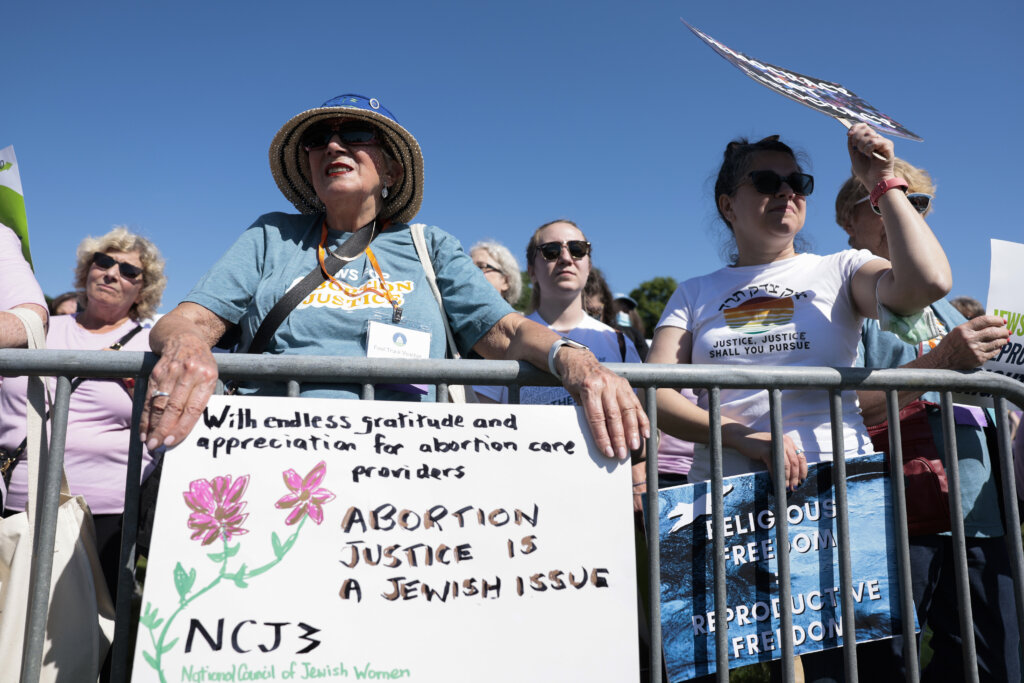
Katz also said she was heartened to see strong statements about the Supreme Court decision from Jewish organizations that rarely comment on abortion, including the American Jewish Committee, the Orthodox Union and Hillel International.
The new Havdalah kits, created in-house in anticipation of Roe being overturned, include magnets that say “abortion bans are against my religion” and a prayer book whose introduction reads, “The world we are entering is different from the world we have left behind.”
The focus on spirituality was a conscious decision by Katz, who often describes limitations on abortion as a religious freedom issue for Jews. Some experts think this will be a focus of challenges to state laws now taking effect that ban virtually all abortions, though a new case filed in Florida on that basis sparked at least one conservative analyst to challenge the legitimacy of non-Orthodox Jews to make that argument.
While 83% of American Jews believe abortion should be legal in all or most cases, according to the Pew Research Center, compared to 58% who say they’re attached to Israel, many leading Jewish advocacy organizations focus far more on the Middle East.
Jewish Federations of North America, which doles out more than $200 million in annual grants across the country, declined to take a position on the Dobbs case until a month after the decision, despite commenting on a court case released the day before about a law targeting boycotts of Israel.
“By the time we’re done with our work, everybody will be making a statement,” Katz said in an interview at her office in the group’s Washington, D.C., headquarters.
‘Turmoil’ and a pivot
While the current surge of interest in NCJW is a direct result of mounting limits on abortion access, the organization made a conscience decision to ramp up its advocacy on the issue — preparing for a moment like this — 15 years ago.
For its first 115 years, the group had been run by a board elected by local members, with changes every three years. Nancy Ratzan, who became NCJW’s president in 2008, said “that just didn’t give us enough strength and credibility outside the organization.”
Ratzan, a lawyer and activist who now sits on the board of the pro-democracy group Common Cause, pushed to professionalize the organization, creating the new chief executive role, which Kaufman was hired to fill two years later.
It was a difficult transition for an organization that had been largely run for generations by housewives who could devote scores of unpaid hours to the cause. Members used to work their way through local chapters to state roles and eventually spots on the national board. Suddenly, women who had never been involved in the organization were being offered those board positions. “It was a big struggle to bring along enough people,” Ratzan said on the changes.
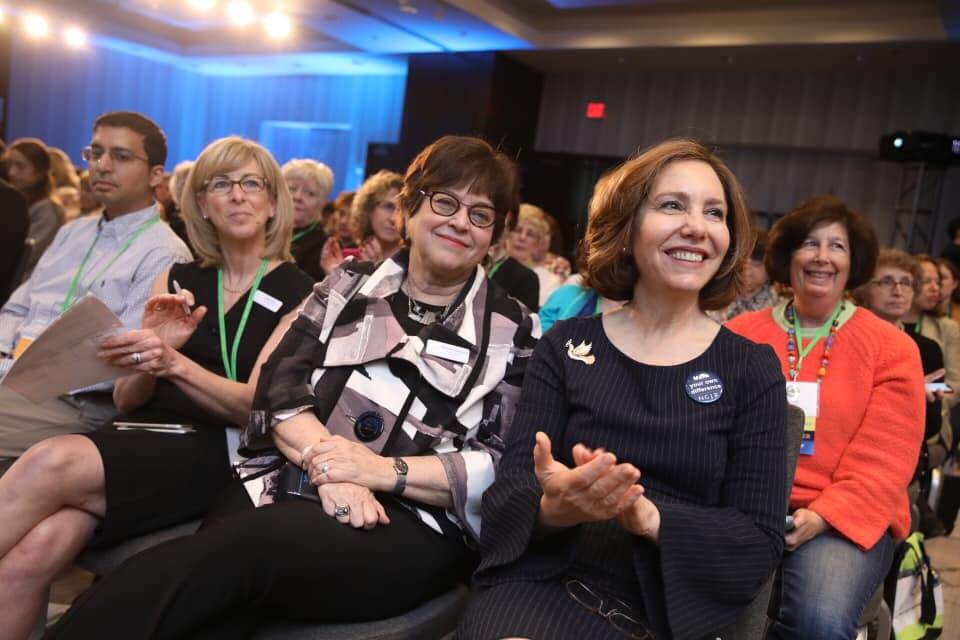
Employee comments on Glassdoor, a website that allows workers to post anonymous reviews, characterized Kaufman’s early years as a period of both “inspiring leadership” and “turmoil,” with “a lot of infighting and arguing among senior leadership.”
“Turning around this ship is nearly impossible,” one employee wrote in 2015.
Kaufman, who had led Boston’s Jewish Community Relations Council for two decades — and who retains her strong New England accent — said one of her chief goals when she started at NCJW was shifting its chapters in 28 states to focus less on community service and more on advocacy. At the same time, she shuttered the organization’s New York headquarters and merged its national office with its policy shop in D.C.
But she struggled against a communal infrastructure she described as uninterested in the organization’s portfolio.
“It was very hard to get Jewish foundations to fund reproductive rights,” Kaufman said. “They were obsessed with young people, Jewish continuity — they didn’t want to fund advocacy.”
When foundations like Schusterman Family Philanthropies started focusing on abortion work a few years ago, NCJW was primed to pick up grants. Katz said the organization’s budget is now $6.2 million, up $2 million from when she took over in 2019, and that total donations from foundations have tripled over the past two years.
Lisa Eisen, co-president of Schusterman, said the shift was connected to the changes on the Supreme Court. “We saw, let’s say, some of the writing on the wall,” Eisen said, “and we saw NCJW as really establishing its credibility, its on-the-ground presence, its role with the courts.”
Shifting into politics
The increased funding has allowed NCJW to stage events like the abortion rally and launch both Rabbis for Repro and 73 Forward, the new umbrella for its abortion advocacy. The urgency around abortion has, in turn, helped clarify the contemporary role of a legacy organization founded as one of the first Jewish women’s clubs, which grew to to emphasize social justice as parallel groups popped up with their own agendas.
For example, NCJW established a network of birth control clinics during the 1920s that would eventually be turned over to Planned Parenthood.
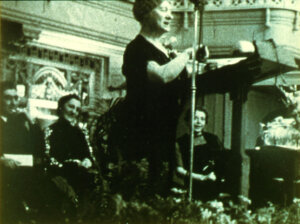
But NCJW never endorsed the women’s suffrage movement, and some of its early clinics were segregated by race. The group’s first major advocacy campaign, back in 1908, was aimed at ending “white slavery,” a term used to refer to the sex trafficking of European immigrants, according to Pamela Nadell, a professor who studies the history of Jewish women at American University.
During the 1960s NCJW became more political. Its work on civil rights, banning nuclear weapons, and protesting the Vietnam War earned it the attention of the FBI as its membership swelled to about 110,000 spread across almost 200 cities.
But the group’s appeal faded as Jewish women started entering the workforce in greater numbers during the 1980s, and mainline Jewish groups began to open their leadership and issue agendas up to women. Dues-paying membership dipped to roughly 90,000 by 2019.
Today, NCJW uses a looser definition of membership. No dues or donation is required, just attending an event or participating in online activism with the group. It counts 210,000 and calls them “advocates.”
The turn away from traditional membership and volunteer leadership is a clear contrast with Hadassah, the largest legacy Jewish women’s group, which also supports reproductive rights but is less focused on advocacy.
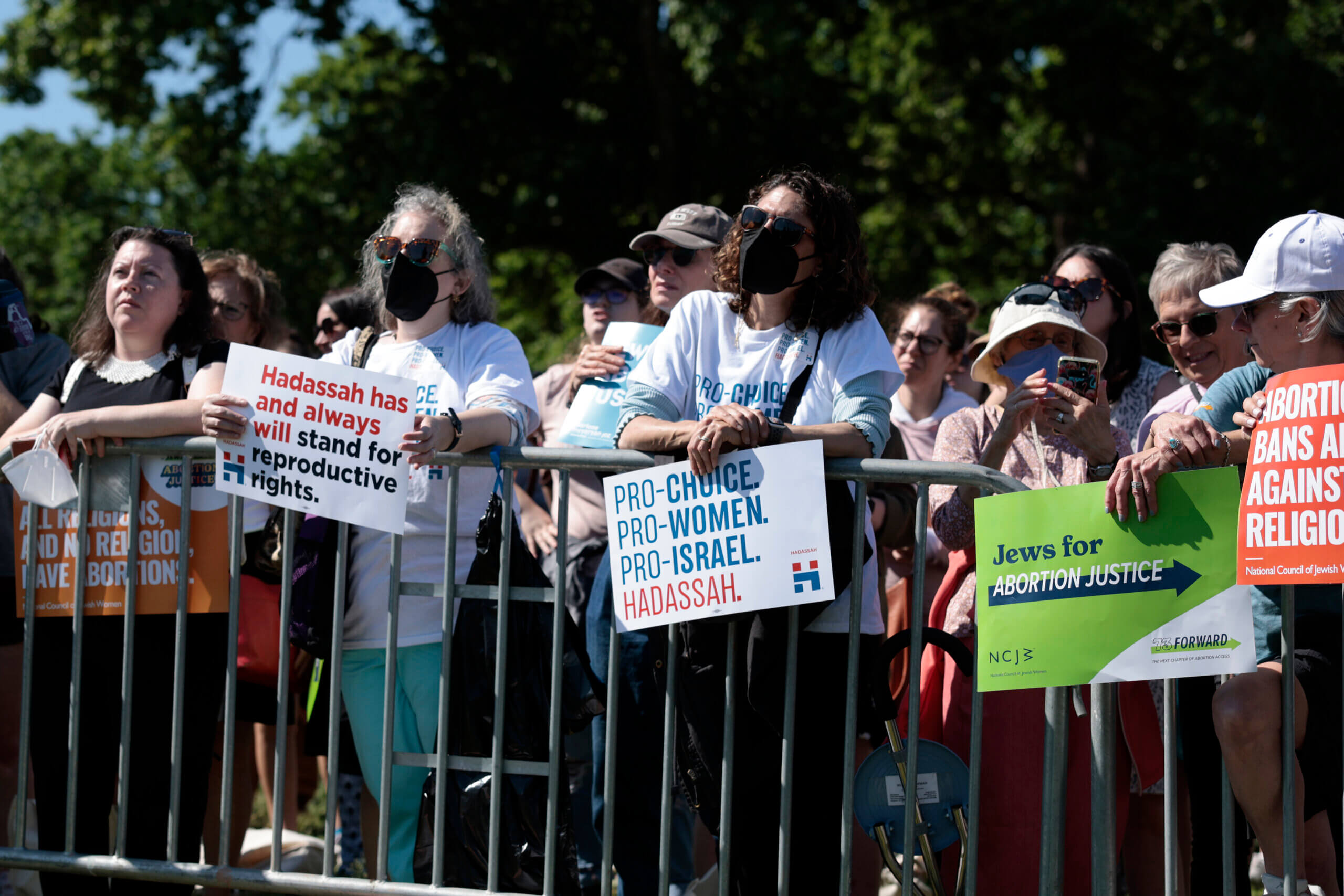
“NCJW has made every strategic decision to become a political advocacy organization,” said Rebecca Sirbu, a former executive at Hadassah. “Hadassah is much more focused on Israel and Zionist causes and they have really shied away from what might be considered controversial issues.”
(Hadassah declined to make any current officials available for an interview. A spokesperson sent a statement noting that the group was a sponsor of NCJW’s abortion rights rally in May and reiterating its support for “complete access to reproductive health services.”)
Uncertain path forward
While Katz was quick to say that the “most underutilized and undervalued group in the Jewish community [is] women over 60,” NCJW has made a concerted effort to attract a younger generation, and it seems to be working.
At 38, Katz is among the youngest chiefs of any major legacy Jewish group. She started her career staffing a Hillel House at the University of North Carolina, where, she said, “my first experience around abortion was with Jewish college students who had been sexually assaulted and needed an abortion.”
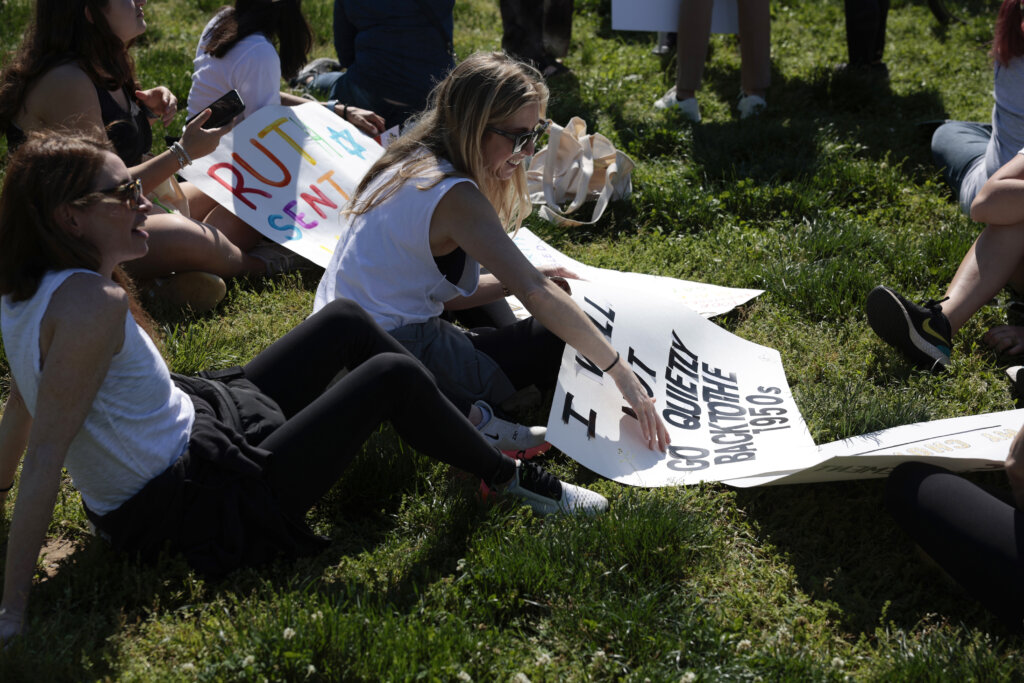
The organization’s Washington headquarters features bright green furniture and a poster with an Audre Lorde quote. At the center of the office are tables with snacks and cards for staff or visitors to send workers at abortion clinics.
A sign dubs the space “Hannah’s Hangout: Feminist Lounge and Marketplace,” with a photo-shopped image of the group’s founder, Hannah Solomon, in green sunglasses — a stark contrast to her white opera gloves, which are framed on the wall.
Katz hired Shira Zemel away from overseeing the Reform movement’s social justice program for teenagers to help direct NCJW’s abortion campaign. The organization’s Instagram account has grown nearly 400% over the last year, to more than 6,000 followers, and posts graphics featuring colorful gradients paired with alarming statistics about what happens to women turned away from abortion clinics.
Katz uses a “reproductive justice” model that calls on white women to defer leadership to people of color, who are disproportionally affected by abortion bans and restrictions.
Jody Rabhan, the longtime chief policy officer for NCJW, hedged when asked whether the organization could support any restrictions on abortion, such as those outlined in Roe, emphasizing that the group was focused on combatting far more onerous restrictions.
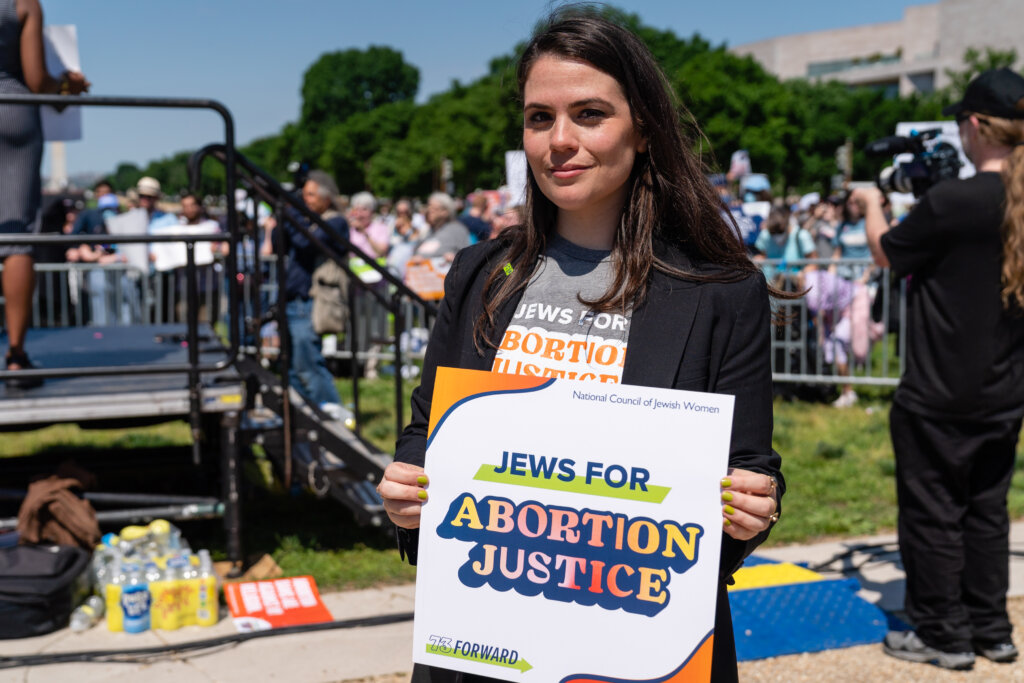
But Katz had a more absolutist take, saying, “People who can get pregnant should be able to make decisions for themselves about when, if and how to start a family.”
Like other Jewish groups, NCJW has had some challenges navigating left-wing spaces increasingly hostile toward Israel. It was one of three Jewish organizations singled out last fall by Sunrise DC, an environmental group that said it would not participate in a voting rights coalition with Zionists.
Katz said the fight — which spawned weeks of headlines — was “a distraction from the work that we need to be doing.”
Now the key question is how NCJW will leverage the surge of interest in its signature issue.
The organization has raised more than $450,000 over the last three months for the Jewish Fund for Abortion Access, which funnels money to a national hotline that helps pregnant people get immediate care.
With the Supreme Court having handed the abortion question back to states, NCJW’s chapter system may be a boon. Katz noted that an Arizona NCJW group filed for a temporary injunction the day after the Dobbs decision to block a law granting “personhood” to fetuses from going into effect (the injunction was granted July 11). Another, in Michigan, collected signatures at a local synagogue for a measure that will appear on the November ballot to guarantee legal abortion.
Rabhan acknowledged there was no longer any clear path to secure abortion access across the country.
“We didn’t lose this in a day,” she said, “and we’re not going to win it back in a day.”















